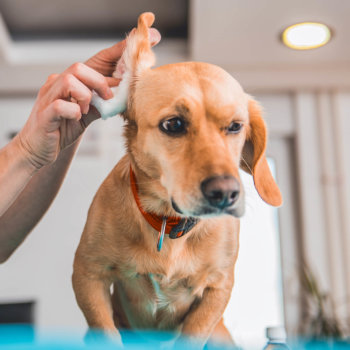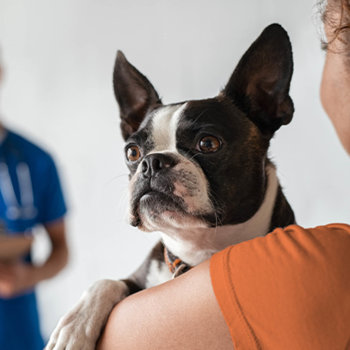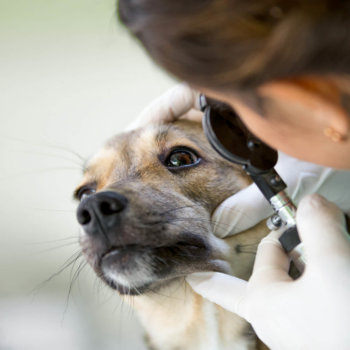Minor Medical Care – GI Upset Package
Because signs of gastrointestinal (GI) disease often look the same regardless of the cause, successful treatment involves properly identifying the cause of your pet’s signs.
by Dr. Julie Sheil, VetIQ Veterinarian
Minor Medical Care – GI Upset Package
Gastrointestinal (GI) upset in dogs and cats can develop due to a variety of causes including intestinal parasites, recent dietary changes, dietary indiscretion such as eating table scraps, mulch, sticks, insects), food sensitivities, food allergies, stressful events (e.g., boarding, thunderstorm phobia, traveling, moving to a new home, home remodeling). More serious causes include pancreatitis, foreign body ingestion (e.g., eating socks, toys, rubber, bones, rocks, string), toxins and poison ingestion, and infectious diseases (e.g., Parvo).
Because signs of gastrointestinal disease often look the same regardless of the cause, successful treatment involves properly identifying the cause of your pet’s signs. This requires a methodical approach using appropriate, and sometimes repeated, testing. If underlying causes are not properly diagnosed, the gastrointestinal upset will continue or may recur. Successful treatment is a team effort between you, the pet parent, and your VIP Petcare veterinarian.
It is also important to note that if your pet’s gastrointestinal condition is suspicious of a serious condition, we may refer you to a full-service veterinary hospital for advanced diagnostics, such as x-rays or ultrasound, or advanced testing or treatment that are not available at our Wellness Centers.
Signs your pet may have minor gastrointestinal upset include:
- Diarrhea or loose stool
- Occasional vomiting of food or bile (once or twice a week)
- Acting normally despite having the above signs (e.g. still wanting to eat, play, and interact)
Signs your pet may have serious gastrointestinal upset include:
- Trying to vomit but nothing comes up: This is a medical emergency. Go to an emergency veterinary hospital right away.
Additional serious signs include:
- Repeated vomiting or inability to keep food down (multiple times in a row)
- Vomiting blood
- Vomiting stomach contents that look like coffee grounds
- Acting lethargic (e.g., not wanting to eat, play, or interact)
- Unable to keep water down
- Refusal to eat or drink
- Constant or near constant drooling
- Passing bloody diarrhea or bright red blood
Pet parents should seek medical evaluation for their pet at the first sign of gastrointestinal upset. Attempting to self-treat your pet is not recommended and may result in prolonged illness. Incorrect treatment with inappropriate or potentially harmful over-the-counter products is not only a waste of money but may be harmful or dangerous for your pet.
VIP Petcare Minor Medical – Gastrointestinal (GI) Upset Package includes:
- A physical examination by our licensed veterinarian
- A fecal flotation* test, performed at our referral laboratory, to screen for intestinal parasites
- Discussion of any additional tests or therapies as needed for long-term management
VIP Petcare GI Upset Package does not include:
- Cost of prescription drugs (e.g. worm or other parasite medications, antibiotics, anti-nausea medications)
- Cost of therapeutic diets, probiotics, or other therapies
- Cost of additional tests or ongoing therapies as needed for long-term management
*A note on fecal flotation testing: fecal flotation is a screening tool used to screen for and identify microscopic worm eggs and other parasites such as protozoans (e.g., Giardia), and coccidia. Because worms lay their eggs in cycles, the eggs may not be present in every fecal sample. Also, some worms do not lay many eggs. This means the test can yield false negative results. If a VIP Petcare veterinarian has a high suspicion of worms being an underlying cause, they may recommend repeating the fecal flotation test. They may also recommend empirical treatment for worms. In addition, protozoans are not easy to detect in fecal flotation tests and may require other forms of testing to identify them.











